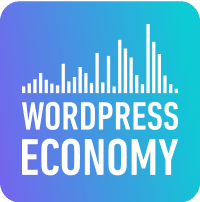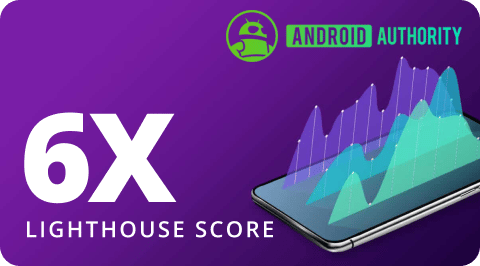Finely Tuned Consultant: Andrew Norcross
 Today, I’m chatting with Andrew Norcross, AKA “Don’t talk to me till I’ve had my coffee,” AKA, “yes I have a tattoo of WordPress.” Norcross is one of the better-known WordPress developers in the community, and one of the organizers for WordCamp Tampa. He got his start in WordPress after freelancing as a static HTML webpage developer on the side to earn some extra cash on nights and weekends to take care of his family. Always the kid who was taking things apart to see how they work, Norcross picked up WordPress when a friend recommended it as an easier way to build webpage. He thought, “I can figure this out,” and did.
Today, I’m chatting with Andrew Norcross, AKA “Don’t talk to me till I’ve had my coffee,” AKA, “yes I have a tattoo of WordPress.” Norcross is one of the better-known WordPress developers in the community, and one of the organizers for WordCamp Tampa. He got his start in WordPress after freelancing as a static HTML webpage developer on the side to earn some extra cash on nights and weekends to take care of his family. Always the kid who was taking things apart to see how they work, Norcross picked up WordPress when a friend recommended it as an easier way to build webpage. He thought, “I can figure this out,” and did.
Part of Andrew’s unique skill-set comes at the intersection of marketing and development. He spent a while working at a marketing agency, and is familiar with how that side of the business works with the technical development side. That’s a huge plus for most businesses.
When Andrew’s not working, he’s spending time with his wife and kids, and their pet pot belly pig (awesome). He also spends time getting inked. Apparently, Norcross has over 110 hours of tattoo ink on him. He’s nothing if not dedicated to everything he does.
In Andrew’s Own Words:
I love being able to solve problems, whether they be my own, a client, or the community at large. WP is so flexible and versitle that if given the time, I can almost always come up with a solid solution that works. And having the WP community around means I’ve always got someone to chat with, compare notes / code, and review ideas.
When was the first time that you really got excited about WordPress and at what point did you decide to make it your career?
Compared to a lot of my peers, I got started late in the game. I didn’t even write a line of PHP until I was 26, having had a career in banking before that. But I had built a few small HTML sites for friends and family, and was starting to get annoyed at having to update every file to make a small change. Then a friend asked if I knew WordPress. I didn’t, but told him I’m sure I could figure it out. And I did.
As for making it a career, that was an accident as well. After my first wife and I had our son, I was doing some small freelance stuff on the side to make extra money since she was staying at home. That’s when I got my first taste of what WordPress could do for me as a career. Then, later on, she started her career as an attorney, and we decided that I would leave my job and go back to school and finish my degree. I figured I would keep doing small freelance work to make a few extra bucks. Within a few months, it had become a full time job. And when I got divorced, I made it a “true” full time job. Since that point I’ve worked for two marketing firms while at the same time running my own company, Reaktiv Studios.
Where do you go first to get your WP news, insights, and updates?
Usually twitter, but I keep an eye on Post Status and WPTavern. I’ve tried to keep twitter to a minimum lately since I’ve got a full workload and can’t afford the distraction, so I check my feed whenever I’m taking a break. I avoid the drama-bait stuff as much as possible, if for no other reason than I am not the most polite when it comes to things like that.
What WP consultants deserve more love than they get? Who should we be paying attention to?
One person who I’m grateful was under the radar a bit was Josh Eaton. He’s our senior developer at Reaktiv behind me, and has cranked out some good looking code for our clients. WP talent is at a premium right now, and I’m happy that he’s with us and growing along with the company as a whole.
I’ve also been noticing a few of the folks who work on EDD with Pippin, Chris Christoff and Sunny Ratilal.
What performance tips would you give to other pros (as related to speed, scalability, security, plugins, backup, etc.)?
Unless they’re in the sysadmin / neckbeard category of professional, I’d give them basic tips (i.e. get a solid managed host, review the plugins you’re running, use security best practices, etc. ) and then tell them to hire a professional for anything beyond that.
Confess to us your biggest moment of WP fail?
Oh hell, where do I start. I’ve had *many* moments of fail. The most recent was last night, when I released my first commercial plugin Reaktiv Ratings. After going through every test imaginable (to me), I flipped the switch before testing to see if the actual *file* downloaded and installed correctly. It did not. Then, in my rush to get it fixed, I sent people a version that was pointing to my staging server. Fortunately this all happened within an hour long period so there weren’t too many people affected.
Beyond that, there is some *really* ugly code out there that I’ve written for clients. Like most developers, I think almost all of my code that is older than, say, 9 months is pretty bad, but I had an old client get in touch with me a few weeks ago about something unrelated, and I saw some of the worst code I think I’ve ever written in my life.
If you were going to spend this weekend creating a plugin that doesn’t exist, what would it be?
I have a list of these plugins 🙂 There are a few I’ve written in small bits, but need to be polished and made for actual release. But given a weekend free of children or work, I’d probably make a utility plugin for oAuth that other developers could use. oAuth is a nightmare.
Do you use Themes & Child Themes, Roll your own, or both?
I’m rolling my own more and more these days, because I’m doing a lot of custom stuff that doesn’t really fit into any theme / framework setup. I have my own “base” theme, which is nothing more than a set of blank files with the proper naming conventions. My general rule of thumb is if I have to spend more time backing out of a framework than I would building one, I go from scratch.
What’s your favorite theme or theme framework? Why?
Like many others, I’m a fan of Genesis when going that route. It’s clean, flexible, and allows me to build on top of it easily enough using native WordPress methods. A lot of frameworks now are trying to re-invent how things are done, and frankely I’m too busy to learn a *new* method on top of what WordPress is made to do.
Favorite plugin?
Other than my own? 🙂 I am a big can of Core Control, since it lets me look at what is going on behind the scenes. And recently I set up Easy Digital Downloads for my own site for plugin sales, and I’ve been really impressed with it. Pippin has put a lot of time and energy into it, and it shows.
Least favorite plugin?
99% of all social plugins. A lot of that is the fault of the social networks, since they all want to add their own custom, meta data, etc. But they’re such a pain in the ass to get matching a site design. I am also not a huge fan of Jetpack, since it has way more stuff than I’d ever want to use and can be overwhelming to clients.
What’s the coolest thing you’ve ever done with Custom Post Types?
Geez, at this point it’s hard to think of what I haven’t done. I use CPTs for just about everything, if for no other reason than it makes content structure easy to explain for clients. But probably the coolest thing I’ve done is something I’m still working on. I have a client that is converting to WordPress for a content-based newsletter they produce. Using a CPT, I’m able to not only create the content, but it gets formed into a MailChimp template for distribution, it generates a JSON file that an iPhone app uses, an also creates a syndicated version for a few other places that republish it. All from one source – WordPress.
What do you think is the biggest challenge that WordPress consultants will face in 2013?
Choosing which projects to take on. Speaking for my company, we’re usually booking out at least a month or two in advance, and most of the folks I know are in the same position. I’m happy to see a lot of people are getting serious about the business end of what they’re doing, but there are a lot of growing pains involved with that.
If you could change one thing today about WordPress, what would it be?
It’s been said before, but on the core WP side of things I would love to see the admin area become a lot more flexible. I understand the argument for consistency, but it’s hard to deny that the UI has become bloated and confusing to a lot of people, especially new users. It’s gotten better over time, with functions for re-arranging the order of admin sidebar items and the ability to remove unused widgets, but there’s still a lot there.
On the business / marketplace side, I would like to see Automattic / WP Foundation put more effort towards promoting commercial plugin developers. They have their page of GPL commercial themes, but nothing for plugins. They also don’t seem to really even mention them. At the same time, I’d like a bit more community enforcement of bad plugins in the repository. The review team is overworked as it is, and many times something may start out OK but get worse down the road. Even a simple “report this plugin” button on the repository page would go a long way to allowing the review team (and others) to police what’s out there.
Where do you see WordPress going in the next 2-3 years?
As more people are bending and twisting it into ways that no one ever thought possible even 2 or 3 years ago, I see it becoming even more flexible and modular in nature, making it easier to remove / repurpose parts of the admin and front-end functions. Also, I see the design side going farther into a lot of the webapp space with theme integration.
Tell us a story where you saved the WP day for yourself or on a client project. What made the difference for you?
Back in my finance days, I remember having to use a horrible Java based CMSs for a company intraweb. It was…bad. No one liked it. It broke weekly. It was a nightmare to update basic content. And it was *expensive*. So later on, I was having a conversation with a CTO for a mid-size company that was starting to look at a CMS setup for their company intraweb, as they had none. When he mentioned the same name of the one I had used, I had a look of horror on my face that scared him. Then I asked, “Why not WordPress?” He gave me the standard “for blogging” response, so I fired up my laptop and showed him a quick setup I had, and even wrote a quick function to display some data he mentioned that would be used internally. When I then told him that the software itself was *free*, he was bowled over. I then said that he could hire a full-time staff member to manage the IT part of the site for less than the annual subscription fee for the other software. So I not only saved the company at least $50k, but I got someone a job.
What’s the biggest misconception you encounter about WordPress, and how do you clear it up for your clients?
That WordPress isn’t flexible enough for their needs. I believe a lot of people have moved beyond the “just for blogging” stage, but they still see it as content only. Usually I just take their “problem”, show them a solution, and it’s a non-issue going forward. Clients want results, and that’s what we give them.
If you were interviewing another WordPress developer for a job, what is the first question you would ask and why?
First thing is I would do is ask to see their code, before a word is spoken. If they don’t have any public code (either released in WP repo, GitHub, other OSS projects, etc.) then the chance they’d be a good candidate would be low. Then I’d ask a few other folks I know and trust to review the code, and if they know the person as well. IF the code itself is up to snuff, and they aren’t a closet sociopath, I’d start asking them about why they code, what they want to accomplish, and where they think their best fit in the community (and company) would be. My company now is small, but if things work the way we plan it’ll grow.
What did I miss? Here’s your chance to fill in the blanks and add something you want people to know about you!
While I may look mean to some folks with all the tattoos and surly attitude (Brian Clark once called me “salty”, which I took as a compliment), I’m just a regular husband, father, and nerd. When I’m not coding (which isn’t too often) I like to BBQ, work on things around the house with my wife, or build Legos with my kids. Or without my kids. They’re not that important to the Lego side of things. I certainly don’t try to take anything too seriously. I’m a homebody, but my wife is slowly getting me to travel more. I’m a big baseball fan, and my only real “bucket list” sort of thing is to see a game live in every MLB park. I’ve only got 6 done so far, so there’s a ways to go. I try to sync up WordCamps with baseball season, but that hasn’t worked too well so far.
Other than that, I think we’ve hit everything. We’re just busting our ass down here in Tampa, and look forward to what comes next!
Thanks Andrew!
You guys can check out Andrew’s work over at Reaktiv Studios to see what his team can do for you.











Start the conversation.